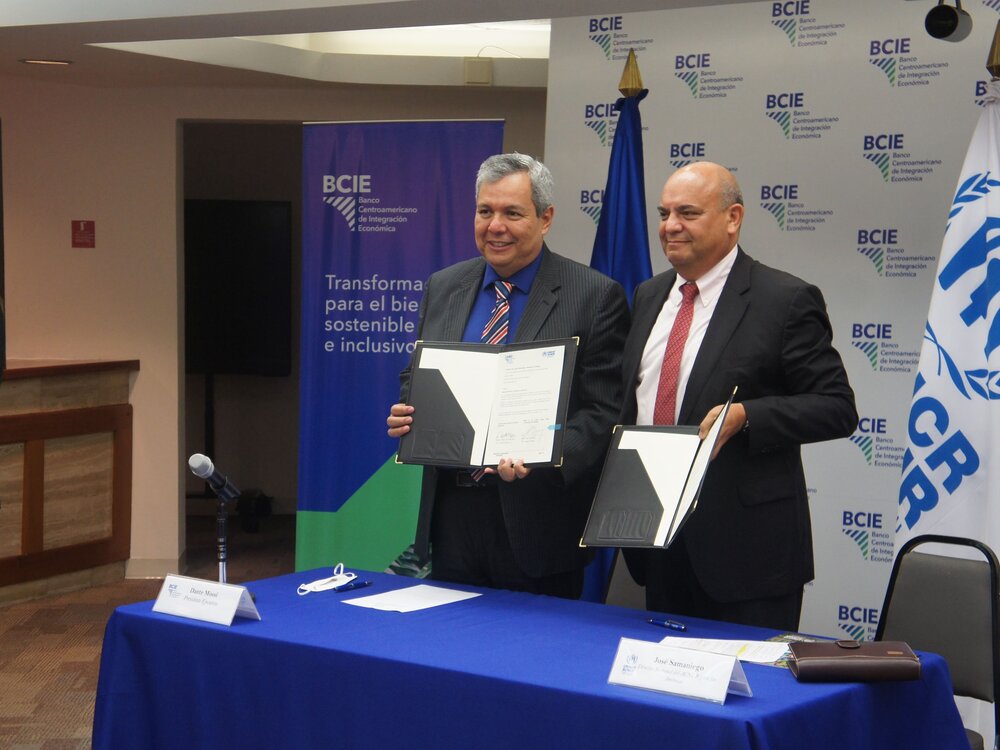CABEI and UNHCR join efforts to mitigate migration in the region

The multilateral, together with the United Nations Refugee Agency (UNHCR), will create a framework for cooperation to address migration-related challenges in the region.
Tegucigalpa, October 25th, 2022 - In order to jointly identify and develop high-impact initiatives and projects that address the causes and challenges generated by migration, forced displacement, and refugees in Central America and Mexico, the Central American Bank for Economic Integration (CABEI), through its Social Support Foundation (FAS), and the United Nations Refugee Agency (UNHCR), will jointly identify and develop high-impact initiatives and projects that address the causes and challenges generated by migration, forced displacement, and refugees in Central America and Mexico.
The agreement also provides for the mobilization of non-reimbursable resources to support the promotion of migration-related information, studies, research, publications, data collection and analysis.
"We are pleased to formalize this agreement that will allow us to promote actions focused on enhancing cooperation, as well as the exchange of experiences that facilitate the development of initiatives to promote opportunities for vulnerable communities in the region," said the Bank's Executive President, Dr. Dante Mossi.
"In the face of the current challenges of displacement, humanitarian action is not enough. The involvement of development actors is fundamental to address the structural causes of displacement and invest in development processes in host communities. The ultimate goal is to leave no one behind and to see the refugee and displaced person as a dynamic actor who can contribute to the development of his or her community," said José Samaniego, UNHCR Regional Director for the Americas.
Both CABEI and UNHCR will facilitate coordination and synergies with other institutions and organizations specializing in migration in order to promote and implement actions to mitigate the problem in the region.
More than 1.3 million people have been forced to flee Central America due to violence and persecution. While others have sought protection outside their countries, El Salvador and Honduras are also facing the phenomenon of internal displacement.
This agreement is particularly relevant in view of the increase in the number of people in vulnerable situations and forced to leave their homes as a result of the effects of climate change and the widespread violence in the country, as it will extend the coordination and synergy spaces for resource mobilization and solution generation.




